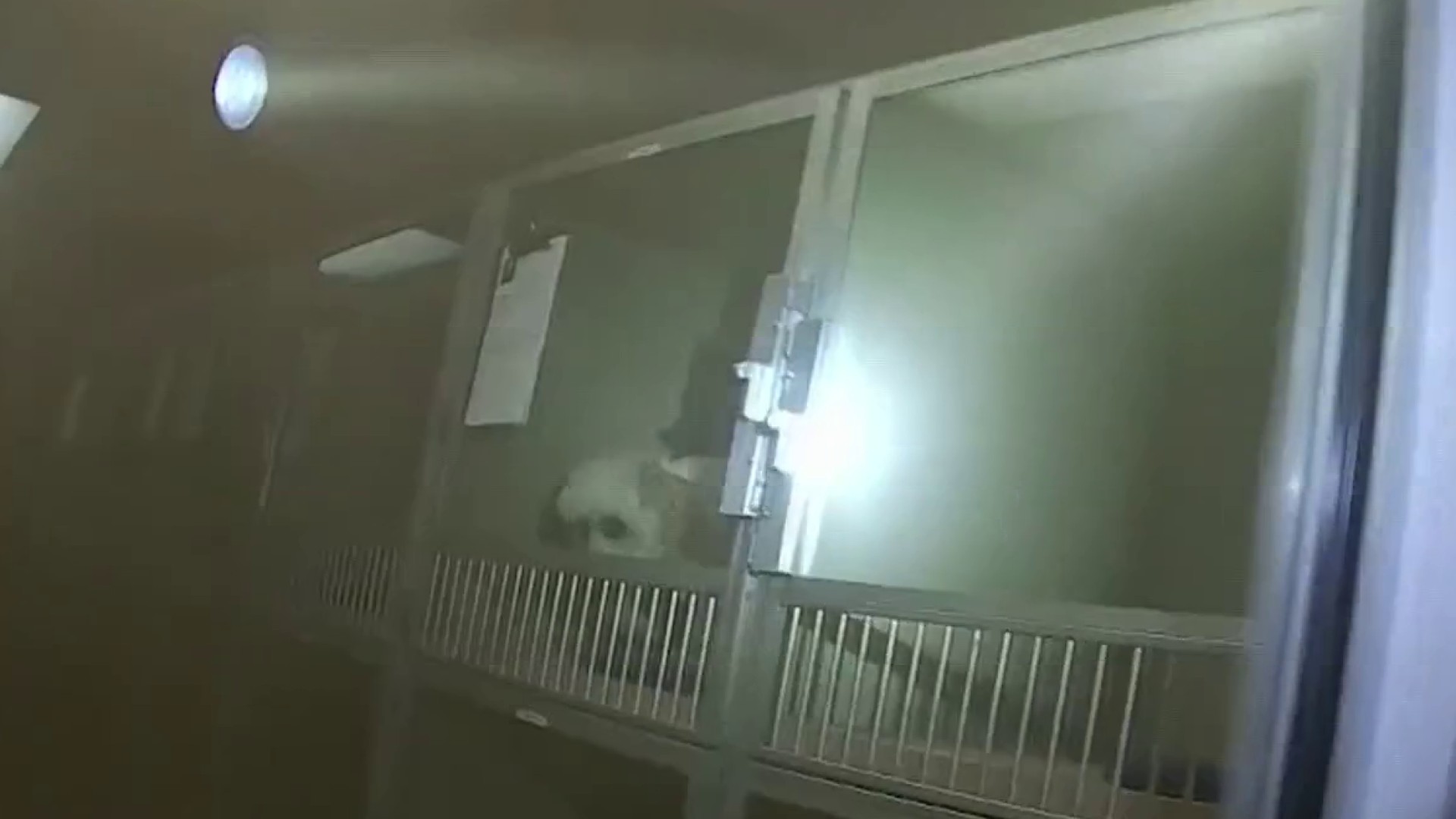What to Know
- The 24-year-old Brooklyn man who was arrested for allegedly cutting the brake lines of an NYPD van during the George Floyd protests this summer apparently lied on a loan application, ultimately receiving stimulus money for a nonexistent business, according to the Acting United States Attorney Eastern District of New York.
- If convicted, Jeremy Trapp faces up to 20 years’ imprisonment on the fraud charge.
- This latest allegations by prosecutors are not the only run-in Trapp has had with the law. Trapp was arrested in July for allegedly cutting the brake line of an NYPD van in Brooklyn was then arrested early August by FBI agents on federal charges in connection to the same incident, officials said.
The 24-year-old Brooklyn man who was arrested for allegedly cutting the brake lines of an NYPD van during the George Floyd protests this summer apparently lied on a COVID-19-related loan application, ultimately receiving stimulus money for a nonexistent business, according to the Acting United States Attorney Eastern District of New York.
A criminal complaint has been filed in federal court in Brooklyn charging Jeremy Trapp with wire fraud in connection with the Economic Injury Disaster Loan (EIDL) program, which provides qualifying small businesses with low-interest loans. The Coronavirus Aid, Relief and Economic Security (CARES) Act expanded EIDL to provide economic support to help offset the temporary loss of revenue experienced by businesses due to the COVID-19 pandemic.
If convicted, Trapp faces up to 20 years’ imprisonment on the fraud charge.
Trapp is being represented by Ashley Burrell of the Brooklyn Federal Defenders. NBC 4 New York reached out for comment.
According to the complaint, Trapp applied for an EIDL loan and grant in June 2020. In the application, Trapp claimed that he was the sole proprietor of a car wash business located at his home address in Brooklyn, a multi-unit residential building. Trapp allegedly went on to claim that he employed ten individuals and that his gross revenue for the 12 months prior to the COVID-19 pandemic was $150,000. Based on Trapp’s application, the Small Business Administration approved a $42,500 loan and $10,000 grant to Trapp, and these funds were deposited into Trapp’s bank account. On July 13, Trapp withdrew about $9,000 in cash from the bank account.
Subsequently, a government investigation revealed that Trapp did not own a commercial car wash business and did not employ anyone.
“As alleged, Trapp filed an application containing outright lies in order to steal government funds intended to help small businesses and their employees survive the economic fallout of the COVID-19 pandemic,” Acting United States Attorney Seth D. DuCharme said in a statement. “The Department of Justice will ensure that taxpayer and pandemic relief funds are not misappropriated, but are used for their intended purpose and deserving recipients.”
This latest allegations by prosecutors are not the only run-in Trapp has had with the law.
Trapp was arrested in July for allegedly cutting the brake line of an NYPD van in Brooklyn was then arrested early August by FBI agents on federal charges in connection to the same incident, officials said.
Trapp was initially cuffed by NYPD officers who spotted Trapp emerging from under the van July 17. A pair of scissors was found on him, police officials said.
News
Video of Trapp allegedly sabotaging the vehicle shows him underneath the van, which was parked in Sunset Park along Fourth Avenue and 42nd Street that day.
A senior police official said at the time of Trapp’s original arrest that a mechanic confirmed the brake line damage would have prevented the van from stopping. An inspection of the vehicle revealed a line for a wheel speed sensor, which was part of the anti-lock brake system, had been partially severed.
Officials say Trapp was seen at times coming and going from the Occupy City Hall protests in July.
It was while executing a search warrant in relation to the above alleged NYPD vehicle brake sabotage that officials came across Trapp's alleged fraud plot.
While searching Trapp's cell phone "pursuant to the warrant signed by Judge Scanlon, the reviewing agents came upon information in plain view indicating that the defendant JEREMY TRAPP was engaged in fraud associated with the EIDL Program. Specifically, screenshots (i.e. photographs) in the Trapp Cell Phone indicated that TRAPP had applied for a loan through the EIDL Program. The purported purpose of the loan was to pay employees of TRAPP’s car wash business, which he claimed was located at the Trapp Residence," the complaint said.



